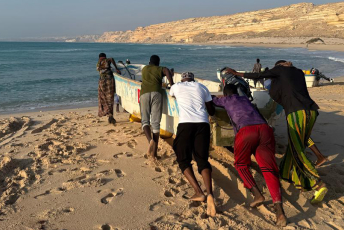Akagera National Park holds an important place in Rwanda’s history. The 1994 genocide took its toll on both the people of Rwanda and the country’s economy and biodiversity, notably wildlife. When refugees returned to Rwanda in the years after the genocide, land previously reserved for national parks was reallocated for farming. As a result, much of the Akagera Park, left uncontrolled, abandoned to poachers, wildlife crime was rampant and the park was stripped of its natural beauty, resources and wildlife. Entire species, such as lion and black rhino, were locally extinct by 2007.
Through the implementation of a new environmental conservation programme, heightened security and reintroduction of key species, Akagera has rebounded in many ways. For example, lion and eastern black rhino were reintroduced in the park in 2015 and 2017, respectively.
As a result of these efforts, since 2010 tourism revenue in Akagera has increased by more than 300%, with Rwandan nationals making up over half of the park’s annual visitors. Akagera offers employment to locals as tour operators, rangers, guides, doctors and more. It brings in revenue from both foreign and local visitors and has attracted foreign investors to support Rwandan schools, hotels and restaurants. Beyond tourism, the boost in Akagera has had an impact on agriculture, mining, transport and industrial sectors.
In 2016, President Paul Kagame commented on the significance of conservation in its relation to the economy of Rwanda, stating that ‘neglecting conservation and failing to mitigate climate-change will adversely affect our tourism, proving that there can be no effective development strategy without an equally effective conservation agenda. That is why we must involve environmental challenges in the broader development dialogue and agenda.’
The rebound seen in Akagera is a strong example of the positive socio-economic and security outcomes that can result from investment and commitment to the protection of wildlife and developing the capacities of national parks.
Annie DuPre, Digital Communication Officer, ENACT, ISS







